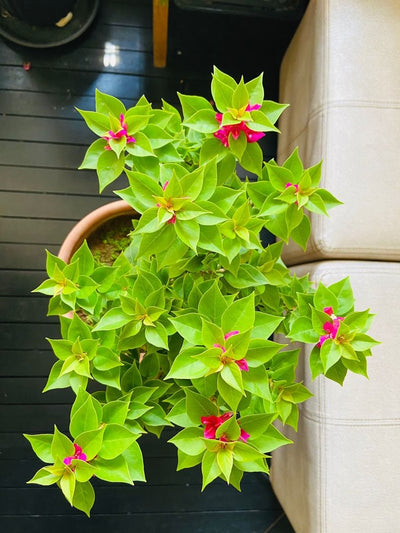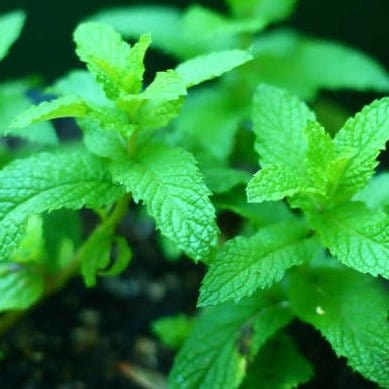Basil Tulsi Plant
According to Hindu mythology, Tulsi, also known as Vrinda, is a manifestation of the goddess Tulsi, an incarnation of the goddess Lakshmi.
Tulsi, also known as holy basil, is typically grown in the courtyard of a home and is venerated by Hindus in the morning and evening. Tulsi is referred to be a "wonder herb" in Ayurveda and is utilised in a variety of Ayurveda procedures to naturally heal the human body.
Types of Tulsi
Rama Tulsi is a type of tulsi with green leaves and light purple flowers. It smells like cloves.
Krishna Tulsi also known as purple leaf tulsi, has a clove-like scent.
Vana Tulsi is a Tulsi that is typically grown for medical uses and has religious significance in India.
Benefits of Tulsi
You should have a tulsi plant in your home for a variety of reasons. You will benefit from this magical herb since it can:
- Minimize anxiety disorders.
- Treat diabetes and the thyroid.
- Remove Cold and Sinus.
- Treating skin allergies, acne scars, and enhancing skin texture.
- Stop hair loss, dry skin, and dandruff.
- Stop ageing prematurely.
- Increase weight loss by regulating metabolism.
Planting and care
Despite being a tropical plant, basil dislikes exposure to direct sunshine.
Therefore, avoid placing your basil plant in an area where the sun is intense.
Basil plants benefit most from indirect sunshine.
Sunlight - Full sun
Watering - Medium
Soil - Well-drained soil
Temperature - (36-40) degree C
Fertilizer - Apply any organic fertilizer
Special feature
The plant tulsi purifies the air. Ayurveda uses the aromatic medicinal plant tulsi to treat a wide range of illnesses.
NOTE:
Images are for reference; the original product may differ in shape and size.






